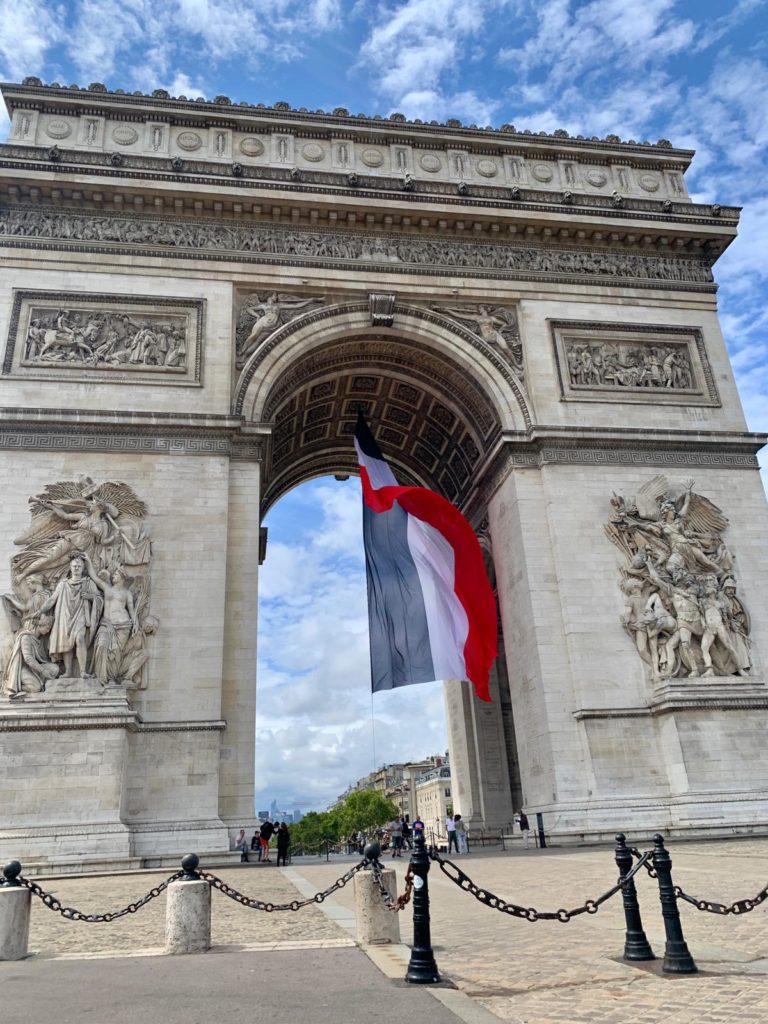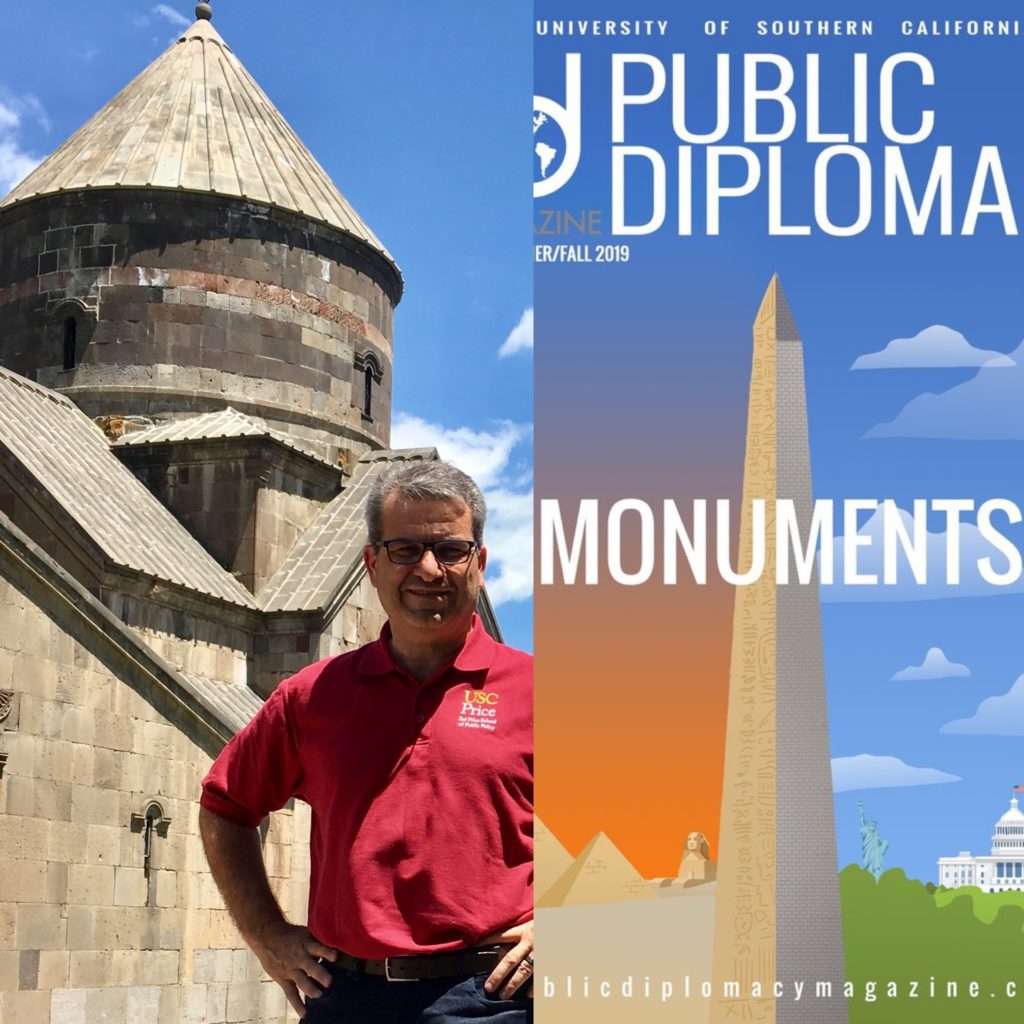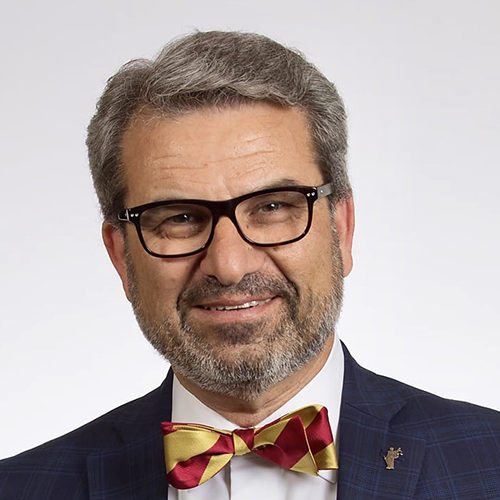In the policy world, we often mention the importance of a “perfect storm.” The alignment of various interests and actors to create or change policy.
In my previous article, I highlighted “Russia’s betrayal of Armenia, her ally,” and the silence from the EU, which left “Armenia to fend for herself against Azerbaijan, Turkey, Pakistan, and mercenaries collected from Syria and Libya’s battlefields.” Russia’s desperate need to improve her regional standing, Eastern Europe’s and generally EU’s dependence on natural gas, coupled with two bankrupt nations’ ideological ambitions, created this perfect storm of national interests to suffocate the Armenian people of Artsakh.
The ugly truth about Russia
The ugly truth about the cease-fire agreement is not so much the capitulation of an unprepared Armenian side (I will write about this soon), but it is why Russia waited 43 days to force it? Forty-three days of bloody fights putting the human toll well over 5,000, including both sides. Given the intelligence-gathering capabilities of a superpower, Russia must have known Turkey’s instigation of the Azeri offensive on September 27.
Why did Russia not discourage the Azeri offensive? Asks Dr. Dumitru Minzarari, an American educated political scientist and a research associate at the German Institute for International and Security Affairs. Dr. Minzarari’s article entitled “Russia’s Stake in the Nagorno-Karabakh War: Accident or Design?” Published on November 12, 2020, examines precisely my question about Russia’s interest in this perfect storm and her design to sacrifice both Armenians and Azeris for her own perceived national interest in reclaiming control of the southern Caucasus.
EU’s silence and its hypocrisy.
Exactly one year ago, Presidents Erdogan and Aliyev inaugurated the Trans-Anatolian Gas Pipeline (TANAP) in the Turkish/Greece border town of Ipsala, Turkey. According to Reuters, TANAP represents $6.5 billion of a $40 billion Southern Gas Corridor that will carry Azeri gas from Azerbaijan to Europe through Turkey. TANAP transports 16 billion cubic meters (bcm) of Azeri gas a year (soon to be 25 bcm), with an extended capacity of 31 bcm with additional investment.
Currently, the EU is allocated 10 bcm of this gas, and 6 bcm is earmarked for Turkish markets, which was heavily dependent on Russian gas. Gas from Azerbaijan is expected to make up around 30%, 20% and 12% of domestic gas demand in Bulgaria, Greece and Italy respectively. TANAP’s shareholders are Azeri state energy company SOCAR (51%), Turkish pipeline operator BOTAS (30%), British Petroleum (BP) (12%), and SOCAR Turkey (7%).
Climate Science/Change in EU
So much for the 2015 Paris Accord, which in its introductory paragraph states, “It is well understood that meeting the goals of the 2015 Paris Agreement will require a swift and dramatic reduction in the use of fossil fuels, barring unexpected advances in carbon capture and storage… Limiting the expansion of coal, oil, and gas production can reduce emissions, complement policies aimed at constraining fossil fuel use, and deliver other social and environmental improvements.”

Climate scientists observed that a 2 degrees centigrade limit on warming means exploiting only a fraction of the world’s fossils. Yet, Azerbaijan just leveraged its fossil fuel to claim territory from Artsakh and inked important deals, including BP. Turkey, on the other hand, is still looking for fossil fuel in Mediterranean waters claimed by Greece. This false and destructive reliance on fossil fuel is with the backdrop of EU estimating the reduction of 25% of fossils by 2030 and 90% by 2050.
Is anyone serious about climate change and the Paris Accord, or Azerbaijan and Turkey are immune to their requirements? More importantly, did Artsakh pay with her blood the expansion of fossil fuels from Azerbaijan. If the EU is serious about transitioning away from fossil fuels as an essential element of achieving climate goals, why the silence? Except arguably some rhetoric from France, no one lifted a finger for the people of Artsakh.

What next?
This European silence can change with action. EU can calm the perfect storm by canceling all contracts for fossil fuels from Azerbaijan and Turkey. The EU and its members can immediately recognize the Republic of Nagorno Karabakh, which like Kosovo in Europe, will bring lasting peace to the region. There appears to be momentum in France and the messaging of President Putin in Russia. Perhaps President Biden could be the first to actually act on what he said about recognizing the Armenian Genocide and the recognition of Artsakh. As to Russia, she can become productive by protecting Armenia’s cultural monuments dating back several millennia. The desecration and the destruction of Christian monuments under Turkish control are sadly part of the culture. I hope UNESCO is listening. The current cease-fire brokered by Russia is simply a band-aid on a gaping wound dating back centuries. #RecognizeArtsakh

Frank V. Zerunyan is a Professor of the Practice of Governance at the University of Southern California (USC) Sol Price School of Public Policy (USC Price) and Director of Executive Education at USC Price Bedrosian Center on Governance. Professor Zerunyan oversees USC’s Reserve Officers’ Training Corps (ROTC) as the Director and University Liaison for the U.S. Air Force, Army, Naval Reserves ROTC, and Nautical Science Programs.
Professor Zerunyan’s principal areas of expertise include governance, public-private partnerships, civic and ethical leadership, land use, medical regulation, negotiation, and executive education. He lectures locally and globally to build capacity and foster leadership among public executives worldwide. He is the author of books, book chapters, and many short articles published nationally, internationally, and on USC Price’s “Faculty Perspectives.” Professor Zerunyan is often quoted in the media and is a USC resource for journalists as an expert in governance and leadership. He is also an expert on public administration at the United Nations Innovation Branch (formerly Capacity Building Branch).
For his influential advisory role in the Republic of Armenia, he was awarded LL.D. Doctor of Laws – Honoris Causa by the Public Administration Academy of the Republic of Armenia. Professor Zerunyan designs curricula and teaches at the American University in Armenia, Yerevan State University, and the Vazgen Sargsyan Military University in Armenia, with an honorary rank of colonel. He also teaches for the U.S. Navy at the U.S. Naval Service Training Command.
Professor Zerunyan serves on the editorial boards of the Public Administration Scientific Journal for the Republic of Armenia and the Ukrainian Law Review. He is on the board of councilors of Anahuac University Law School, Xalapa, Mexico (Consejo Consultivo de la Escuela de Derecho).
Professor Zerunyan earned his Doctor of Jurisprudence (Doctor of Laws) degree from Western State University College of Law and his Bachelor of Arts degree from California State University Long Beach. He also completed his advanced legal education in Corporate Taxation at the University of Southern California Law Center (USC Gould). He is a graduate of the California League of Cities’ Civic Leadership Institute.
Professor Zerunyan, trained and practiced as a lawyer, is a four-term Mayor and Councilmember in the City of Rolling Hills Estates, California. He serves on several city, county, and regional policy boards and committees. He was also a gubernatorial appointee under Governor Schwarzenegger, serving 38 million medical consumers on the Medical Board of California.

